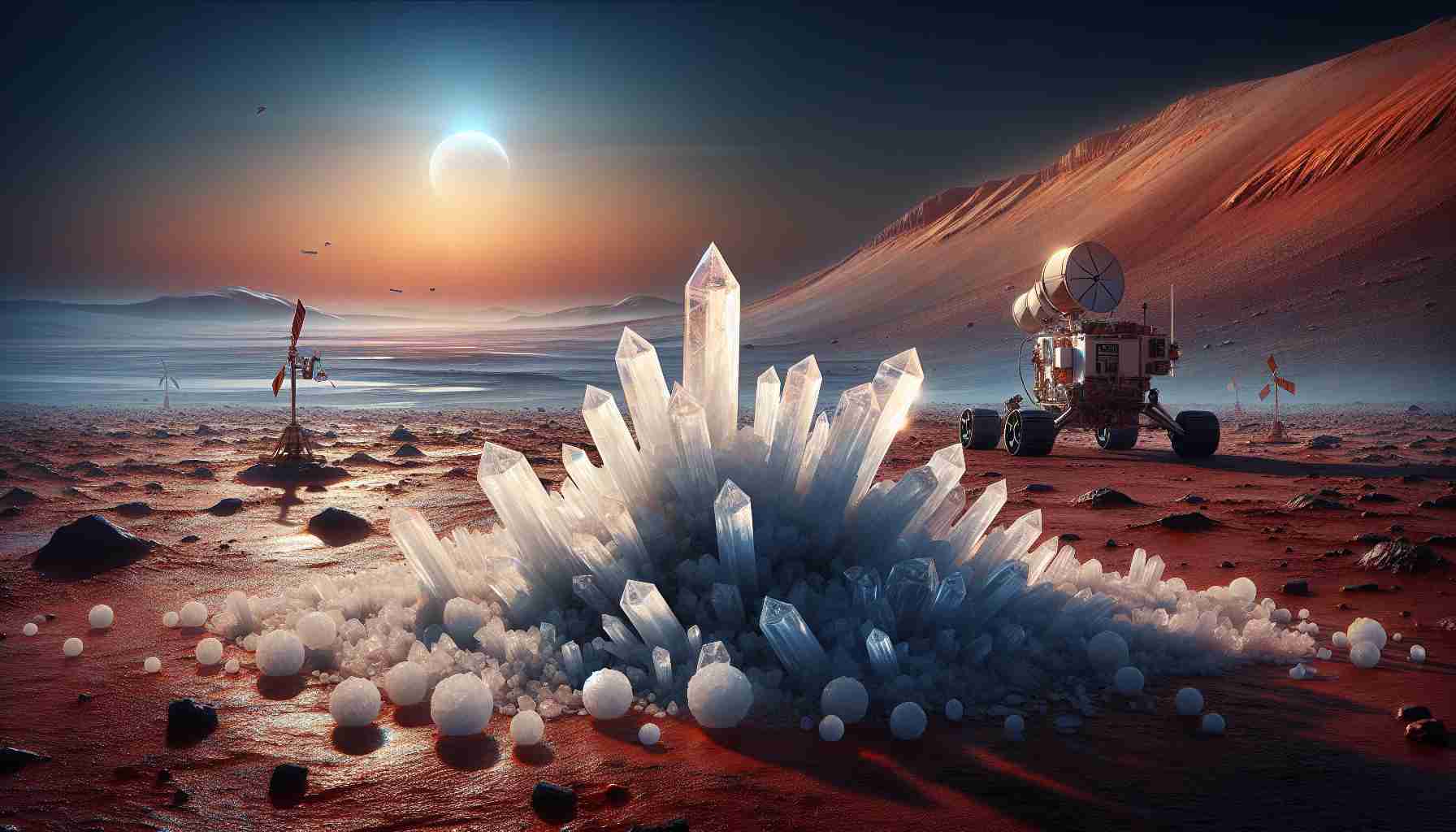Scientists have long believed that water is the key to finding life on Mars. However, a new perspective challenges this notion, suggesting that introducing liquid water to the planet may actually harm potential life forms. Instead of the traditional “follow the water” approach, astrobiologist Dirk Schulze-Makuch advocates for a focus on salts as a crucial element in the search for Martian life.
In a recent publication in Nature Astronomy, Schulze-Makuch presents a compelling argument that the introduction of liquid water to Mars could be detrimental to any existing life due to the planet’s extreme dryness. He proposes that salts, which have the ability to draw moisture from the atmosphere, may hold the key to sustaining life on the Red Planet.
During his research in the Atacama Desert, Schulze-Makuch observed how organisms can extract water from salts in hyperarid environments, highlighting the potential for a similar mechanism on Mars. By shifting the focus to salts, scientists may uncover new possibilities in their quest to discover life beyond Earth.
This alternative approach challenges conventional wisdom and provides a fresh perspective on the search for life on Mars. While water remains a vital component, exploring the role of salts could offer valuable insights into the potential for microbial life on the enigmatic planet.
Rethinking the Search for Life on Mars: Exploring the Role of Salts in Unveiling Martian Mysteries
As the quest for life on Mars continues to intrigue scientists and space enthusiasts alike, a new frontier of exploration emerges with a reevaluation of the importance of salts on the Red Planet. While water has long been considered a fundamental factor in the search for life beyond Earth, the potential impact of salts on Martian habitability opens up a realm of intriguing possibilities.
One of the key questions that arises from this novel perspective is: How do salts on Mars interact with the planet’s environment, and could they harbor clues to potential life forms?
Salts, known for their ability to absorb water vapor from the atmosphere, present a unique mechanism that could sustain microbial life in the arid Martian landscape. Understanding the role of salts in regulating moisture levels and creating habitable niches is essential in expanding our search parameters for extraterrestrial life.
However, a significant challenge associated with this paradigm shift lies in deciphering the complexities of salt interactions within Martian soil and rock formations. The diverse composition of salts, including chlorides, sulfates, and perchlorates, introduces a layer of intricacy that demands thorough investigation to unlock their role in potential biospheres.
One advantage of focusing on salts in the search for life on Mars is the opportunity to explore uninhabitable regions that may host dormant life forms. By tapping into the moisture-harboring capabilities of salts, scientists can broaden their exploration beyond traditionally habitable zones and delve into untouched territories that might conceal microbial activity.
On the flip side, a potential disadvantage of emphasizing salts is the inherent complexity of studying their impact on Martian ecosystems. Deciphering how different types of salts influence the survival and growth of potential organisms presents a daunting task that requires meticulous experimentation and analytical precision.
Overall, the integration of salts into the narrative of Martian habitability poses a riveting avenue for rethinking our strategies in the search for life on the Red Planet. By balancing the significance of water with the nuanced role of salts, scientists are poised to unravel the mysteries of Mars and potentially discover evidence of microbial life thriving in unexpected environments.
For further insights on astrobiological research and Mars exploration, visit Astrobiology at NASA.
